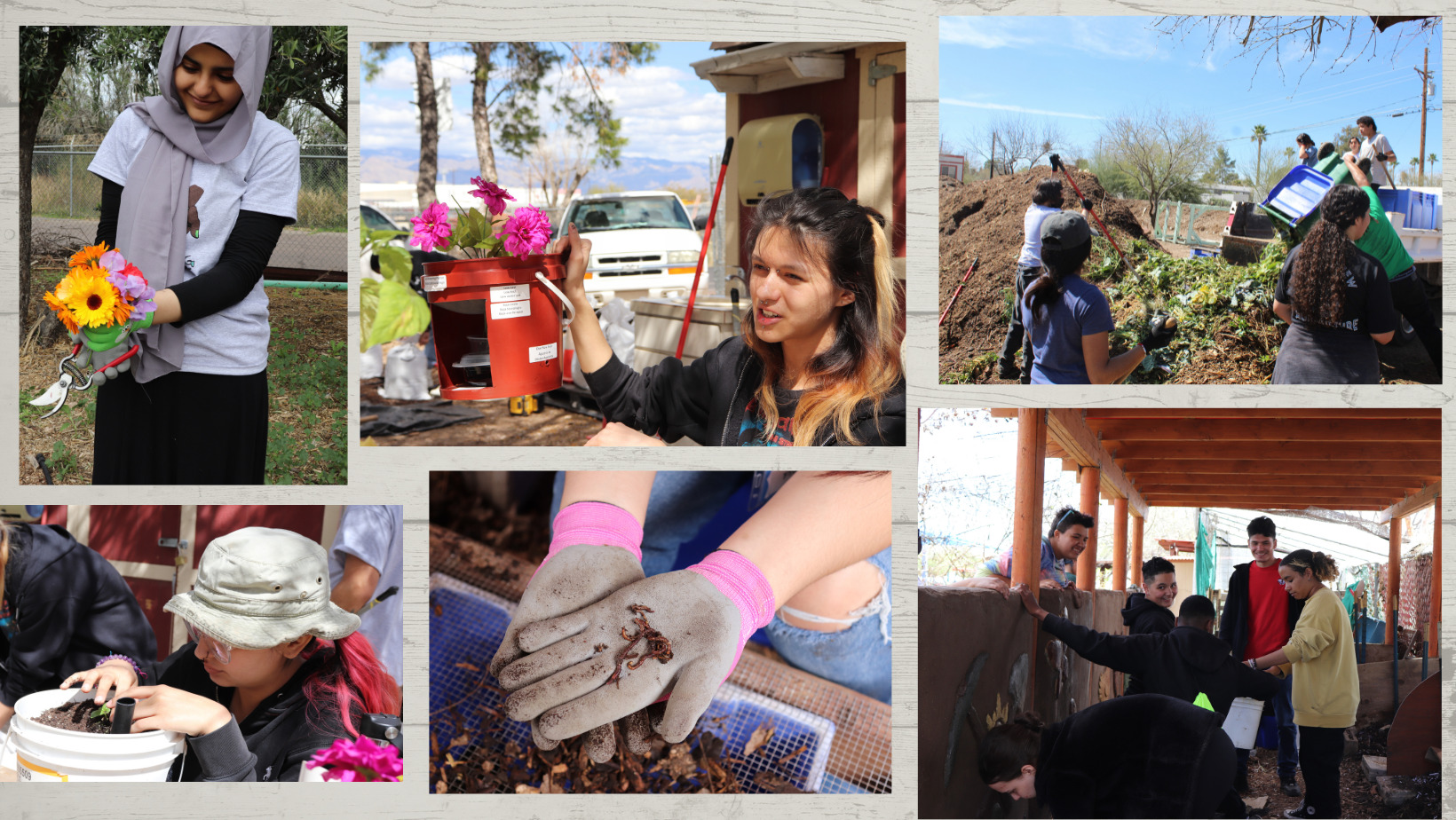Sowing Remedies: Local High School Students Learn about Food Justice
Tags: Advocacy, Community, Education, Farm & Garden, Food Insecurity, Food Justice, Stories, Volunteers
 While other students opt for spending their spring break sleeping in, these two groups of local high school students chose to spend their spring break getting their hands dirty making compost and handling worms. The students learned about food justice and how it can affect them, their communities, and what they could do to advocate for food justice. They spent time at Las Milpitas Community Farm where they were introduced to the idea of food security through growing your own food. Then as a team, they got to shoveling and made a mountain-sized heap of compost!
While other students opt for spending their spring break sleeping in, these two groups of local high school students chose to spend their spring break getting their hands dirty making compost and handling worms. The students learned about food justice and how it can affect them, their communities, and what they could do to advocate for food justice. They spent time at Las Milpitas Community Farm where they were introduced to the idea of food security through growing your own food. Then as a team, they got to shoveling and made a mountain-sized heap of compost!
The students also spent time at Nuestra Tierra Garden, where they worked in different groups and stations doing activities such as making their own self-watering containers and taking home a new plant, harvesting vegetables, and handling the worms in the compost.
This is the second year of the Sowing Remedies program. The students aren’t only being mentored by Community Food Bank staff and community members. This year, the program brought back past participants from the Sowing Remedies program to act as student teachers for the new groups of students.
One of the student teachers for this year, Thomas, was in the Sowing Remedies program during their senior year of high school and came back to help out, a decision they said was purely based on “passion.”
“After completing the program for the first time, I had a talk with my friends in disbelief at how much fun we were having just learning about our community’s food, the land we live on, and connecting with people from all sorts of different places.”
Thomas said doing the program over again as a student teacher felt more impactful as they had to make more effort in trying to connect to students and seeing the different knowledge each student had about different topics. They hope to see more youth involved for the future of this program, to help spread knowledge about important topics such as “agriculture, food justice, and gentrification.”

